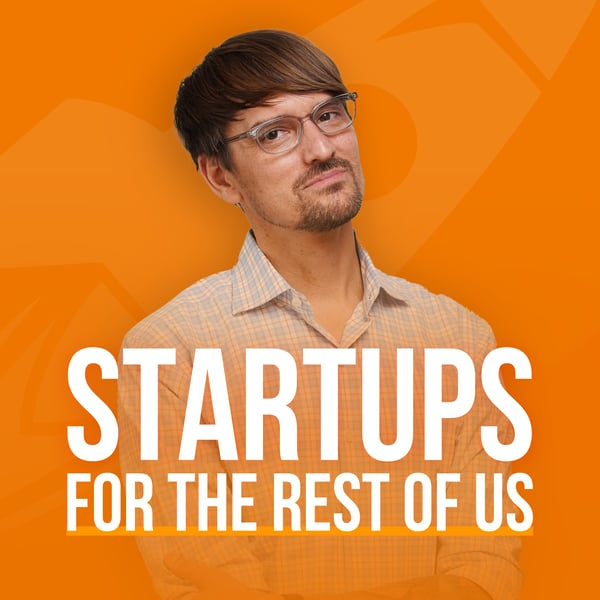Episode 600 | When to Hire Your First Manager + What You Should Be Focused On (A Rob Solo Adventure)
Startups For the Rest of Us
Rob Walling
4.8 • 792 Ratings
🗓️ 26 April 2022
⏱️ 30 minutes
🧾️ Download transcript
Summary
Transcript
Click on a timestamp to play from that location
| 0:00.0 | How many founders do we know, myself included, who burn parts of ourself mentally, |
| 0:05.6 | physically, emotionally to be more successful at an action or to be more successful at our company? |
| 0:11.6 | Like, it is taking aspects of yourself and grinding them down and giving it to this other entity |
| 0:17.8 | so that it can succeed. |
| 0:35.6 | Yeah. other entity so that it can succeed. Welcome back to yet another episode of startups and the Rest of Us. I'm your host Rob Walling, |
| 0:40.6 | and I'm doing a Rob Solo adventure this week. I'm going to talk through some thoughts and mental |
| 0:46.1 | frameworks about certainty versus uncertainty, which things should I be working on versus |
| 0:51.8 | delegating, supervising versus leading? |
| 0:54.9 | Might even touch on a concept called spellburn and talk about thought processes behind when things take iterations and how to maybe know if you're on the right track. |
| 1:04.9 | So the first topic I want to cover today is a question that I'm asked relatively frequently. |
| 1:09.0 | And it's something that I've just written down in my |
| 1:13.0 | book that I'm working on. I'm working on a book about building seven-figure SaaS companies, |
| 1:18.0 | right? Bootstrapping are mostly bootstrapping. And this question of what should I be focused on |
| 1:24.0 | versus which things should I delegate, which roles, which responsibilities, |
| 1:28.1 | which tasks. And the framework that I have around this is certainty versus uncertainty. |
| 1:33.8 | There are so many tasks in a startup that you're relatively certain what the outcome will be. |
| 1:40.4 | So email support is a certainty you're going to get some emails, and it's a certainty you're going to have a response to those emails, right? There's not so much creative work or big levels of, is this going to happen? Is this going to work? I need to try a bunch of different things before I figure out what works. Now, in the early days, in the first month, two, three months, yes, there are new questions. You don't know what's coming. |
| 2:01.3 | But eventually you get your canned responses in, and you've kind of seen 80% of the tickets that are going to come through, and you figure out ways to put stuff in a KB and to make support a repeatable process. |
| 2:12.8 | And this is similar, even with software development, with actually writing the code, unless you're building |
| 2:17.8 | something incredibly novel, incredibly difficult AI, machine learning, something maybe with |
| 2:23.4 | VR, unless you're doing that, the odds are that once you know which features to build, |
| 2:29.0 | that getting that feature built is pretty predictable. You know that you can build the page |
... |
Please login to see the full transcript.
Disclaimer: The podcast and artwork embedded on this page are from Rob Walling, and are the property of its owner and not affiliated with or endorsed by Tapesearch.
Generated transcripts are the property of Rob Walling and are distributed freely under the Fair Use doctrine. Transcripts generated by Tapesearch are not guaranteed to be accurate.
Copyright © Tapesearch 2025.

